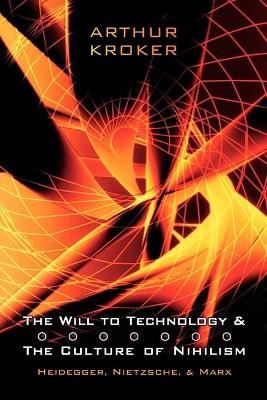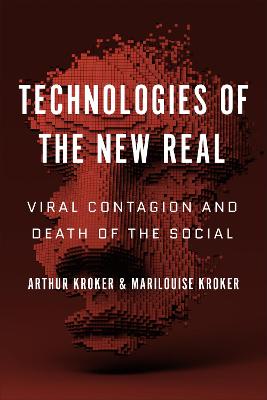Digital Futures
2 total works
In The Will to Technology and the Culture of Nihilism, Arthur Kroker explores the future of the 21st century in the language of technological destiny. Presenting Martin Heidegger, Karl Marx, and Friedrich Nietzsche as prophets of technological nihilism, Kroker argues that every aspect of contemporary culture, society, and politics is coded by the dynamic unfolding of the 'will to technology.'
Moving between cultural history, our digital present, and the biotic future, Kroker theorizes on the relationship between human bodies and posthuman technology, and more specifically, wonders if the body of work offered by thinkers like Heidegger, Marx, and Nietzsche is a part of our past or a harbinger of our technological future. Heidegger, Marx, and Nietzsche intensify our understanding of the contemporary cultural climate. Heidegger's vision posits an increasingly technical society before which we have become 'objectless objects'– driftworks in a 'culture of boredom.' In Marx, the disciplining of capital itself by the will to technology is a code of globalization, first announced as streamed capitalism. Nietzsche mediates between them, envisioning in the gathering shadows of technological society the emergent signs of a culture of nihilism. Like Marx, he insists on thinking of the question of technology in terms of its material signs.
In The Will to Technology and the Culture of Nihilism, Kroker consistently enacts an invigorating and innovative vision, bringing together critical theory, art, and politics to reveal the philosophic apparatus of technoculture.
Technologies of the New Real draws from critical intersections of technology and society – including drones, surveillance, DIY bodies, and innovations in robotic technology – to explore what these advances can tell us about our present reality, or what authors Arthur and Marilouise Kroker deem the "new real" of digital culture in the twenty-first century.
Technologies of the New Real explores the many technologies of our present reality as they infiltrate the social, political, and economic static of our everyday lives, seemingly eroding traditionally conceived boundaries between humans and machines, and rendering fully ambivalent borders between the human mind and simulated data.

